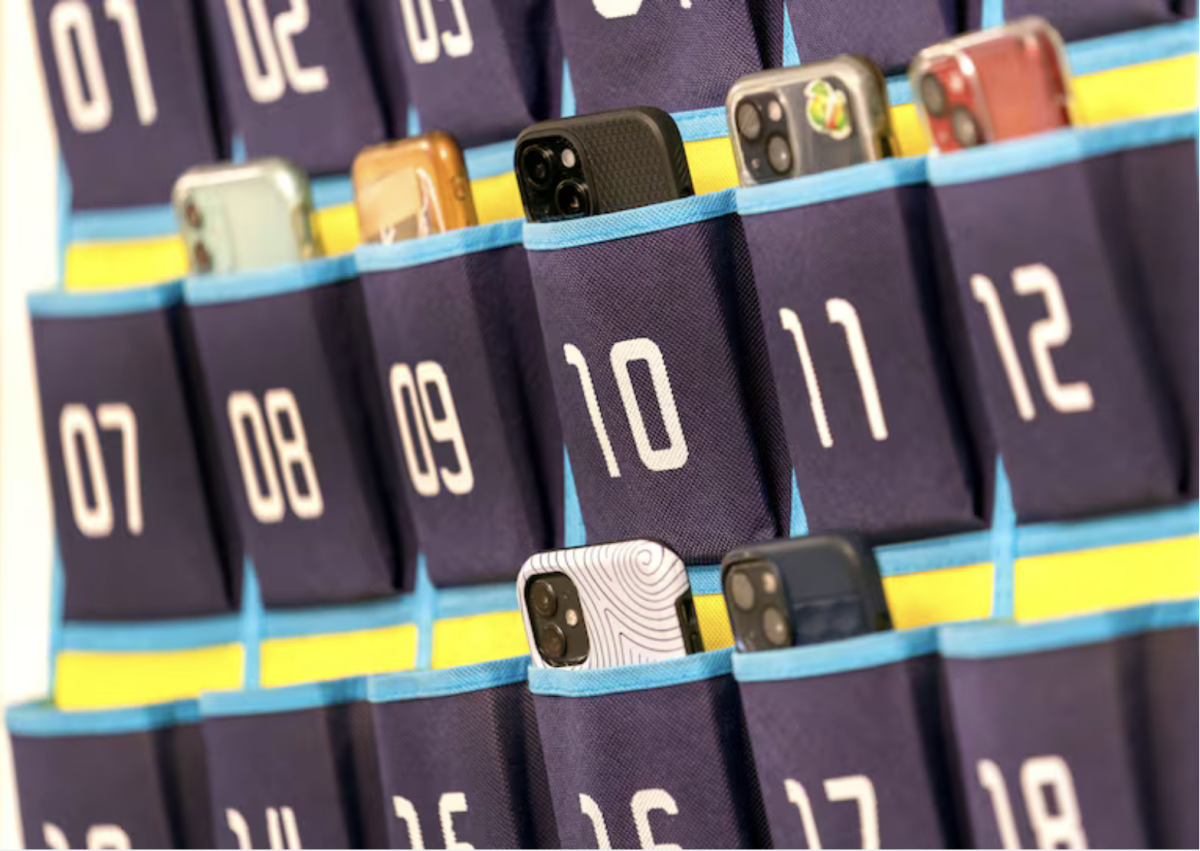Going phoneless for 100 hours

March 4, 2019
People are always talking about the negative effects of constantly being on cell phones, particularly with teens. But is what they say true?
According to Pew Research Center’s dataset “Social Media Use in 2018”, 88% of young adults use some form of social media. It’s easy to see how dependent we have grown on phones, particularly in our teens years. In order to challenge this, I decided to go without my phone for any and all purposes from Jan. 28 through Jan. 3 for a full 100 hours.
Obviously, the first obstacle was my alarm. I hadn’t used my old alarm clock since middle school, so I had to get it out of storage and get it hooked up.
On Monday morning, after waking up to an obnoxious alarm, I was repeatedly reminded of my lack of a cell phone. It was the first thing I reached for when I woke up, and it was weird not having it with me while I ate breakfast or got ready for school.
It was also new for me to not have headphones with music playing, and I will admit that I was tempted to try to dig up an old iPod. In the car, between classes, and at home my life was dull and commercial filled.
My next problem was my carpool. I had not yet gotten out of the car in this school year to tell my friends I was at their house, I simply sent them a text, and waited. It was becoming more and more apparent that phones give us an easy alternative to not only human connection, but physical activity as well.
Once I was at school, it actually wasn’t that big of a difference during class. Cell phone jails were a bit of a problem, but a quick conversation with my teacher and they were happy to have an empty space where my pocket was. I did my class work like normal, and everything felt good until I was in an uncomfortable situation. I never realized how much I used my phone as a social crutch for when I didn’t know anyone or I didn’t know what to say. Missing my phone, I just zoned out, and wondered what I was supposed to do at a time like this.
Also, there were times during class when we did activities on our phones, and I had to use a computer in the back or not participate. Not only our society, but our education system is centered around technology and the immediacy of communication. Simple things I didn’t think about like remind 101, albert, and school loop were suddenly out of my reach.
On Tuesday night, when I was at volleyball, it really hit me how much technology is vital to communication. My entire team wore the same shirt so that we would match, but they forgot that I didn’t have a phone. We need technological communication in every aspect of life: emails, sports, schoolwork, and so much more.
Often times throughout this experience, I wondered how different it would be if everyone at Monte Vista was doing it with me. If everyone in the room lacked a phone, I think the amount of human interaction would greatly increase, and deeper connections would be established between people.
Wednesday night was a turning point in the experience. While walking out of school, I kept on reaching into my pocket to grab my phone out to listen to music or play a game. Eventually, slowing down my walk, I looked around. “Sunny California” really is beautiful, and I’ve never really thought to stop and look around at Monte Vista. Not enough teenagers get to encounter the colors and hills that surround us.
After that, I stopped looking for my phone as much. I was getting accustomed to life without it, and I was becoming much more productive. I got my homework finished much faster because I wasn’t distracted by notifications buzzing next me. I was going to bed earlier, too, because I didn’t have anything to do before bed anymore.
After the challenge came to a close, it wasn’t as dramatic as I thought it would be. I got my phone back, and life went on. However, I can say that after those 100 hours, I am definitely going to make a change in my lifestyle, and maybe all students should too.











